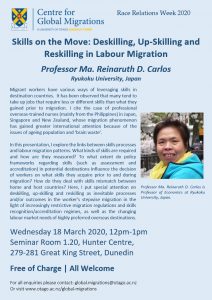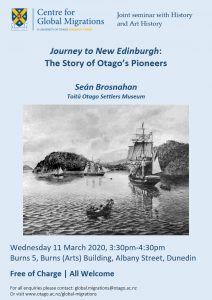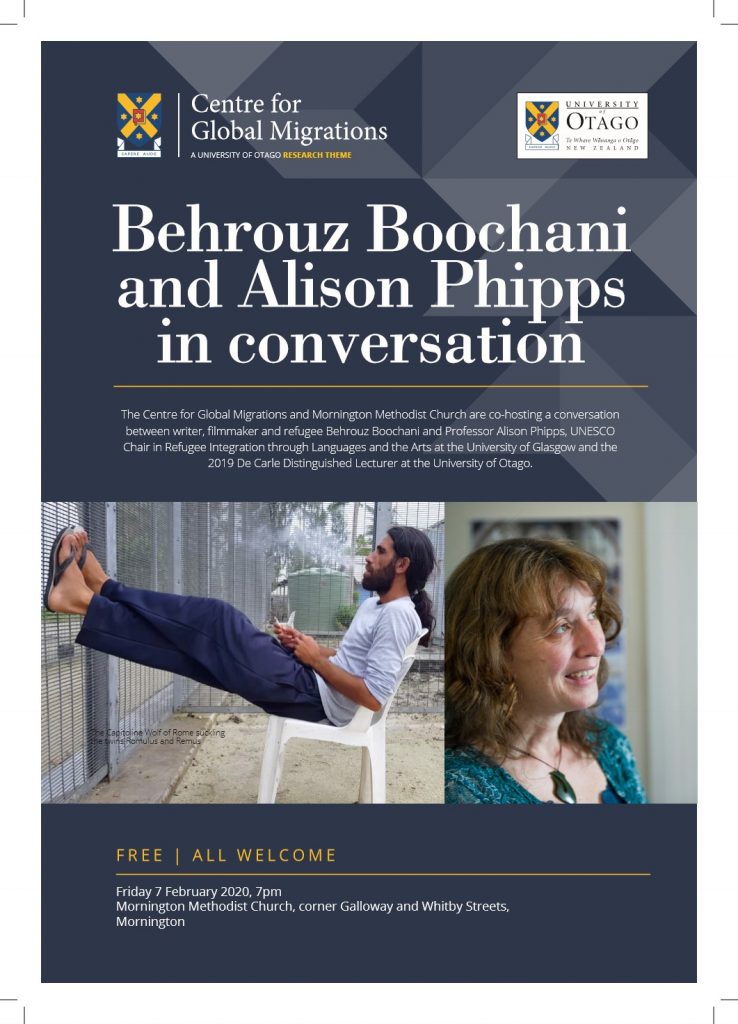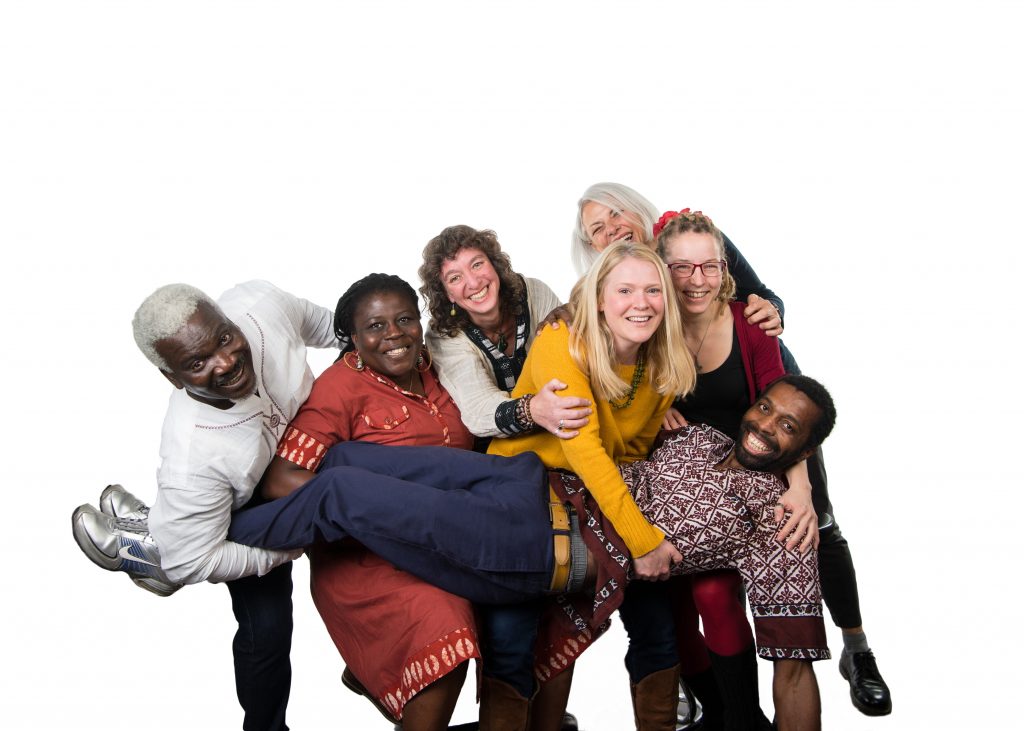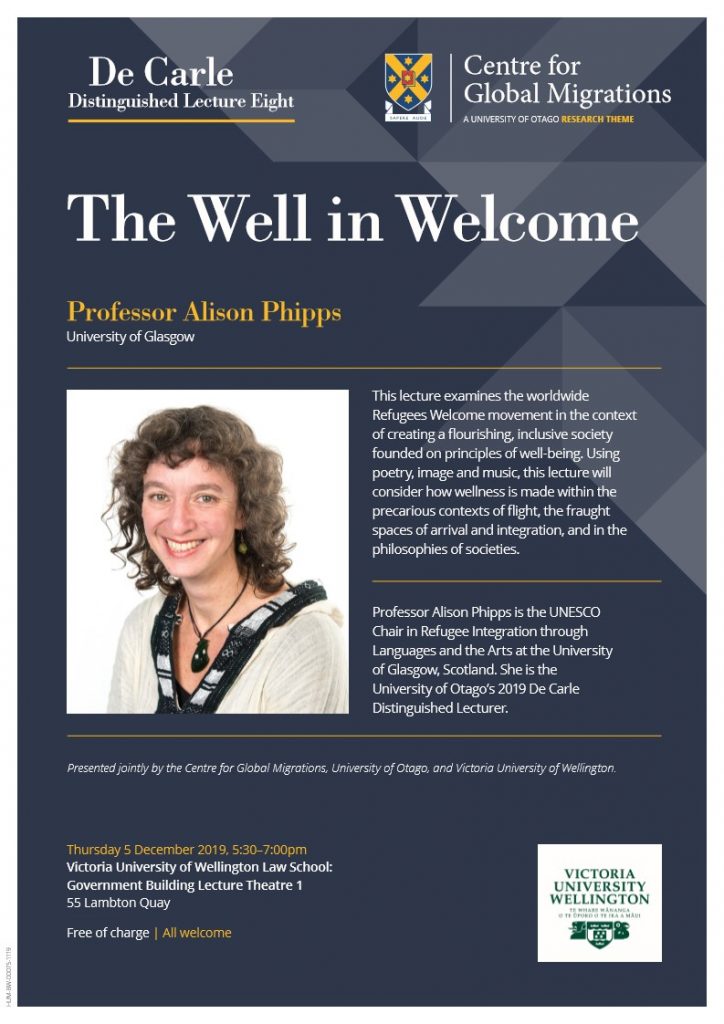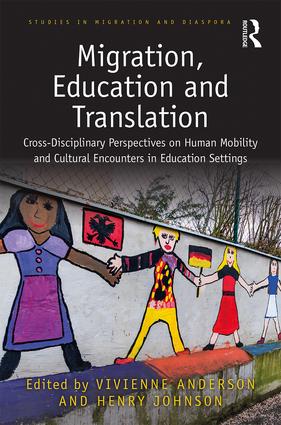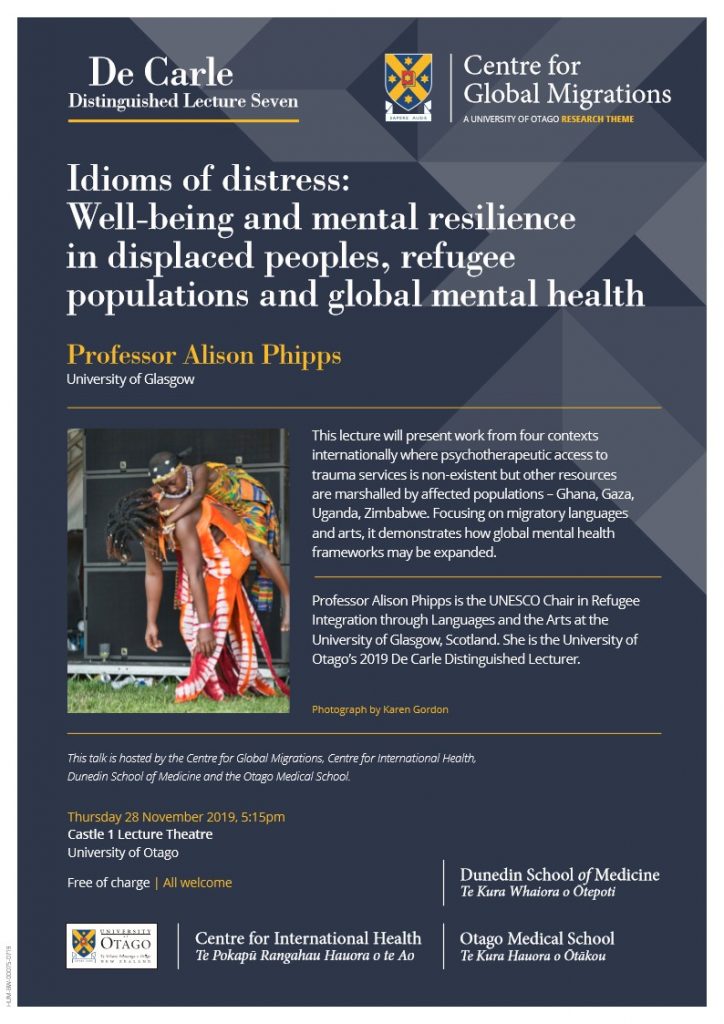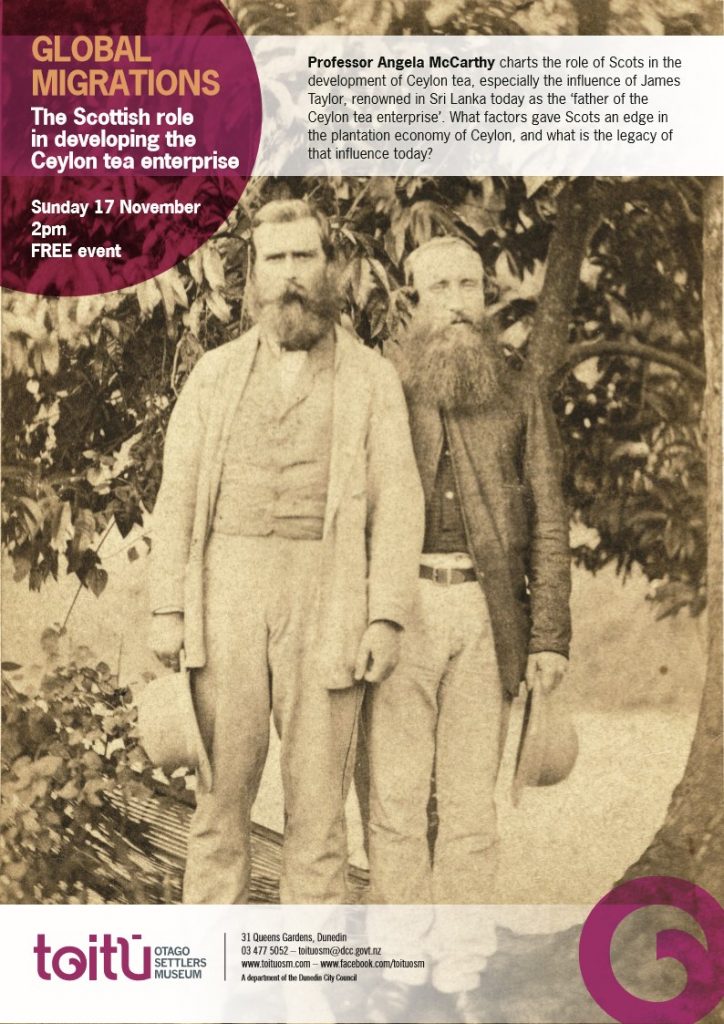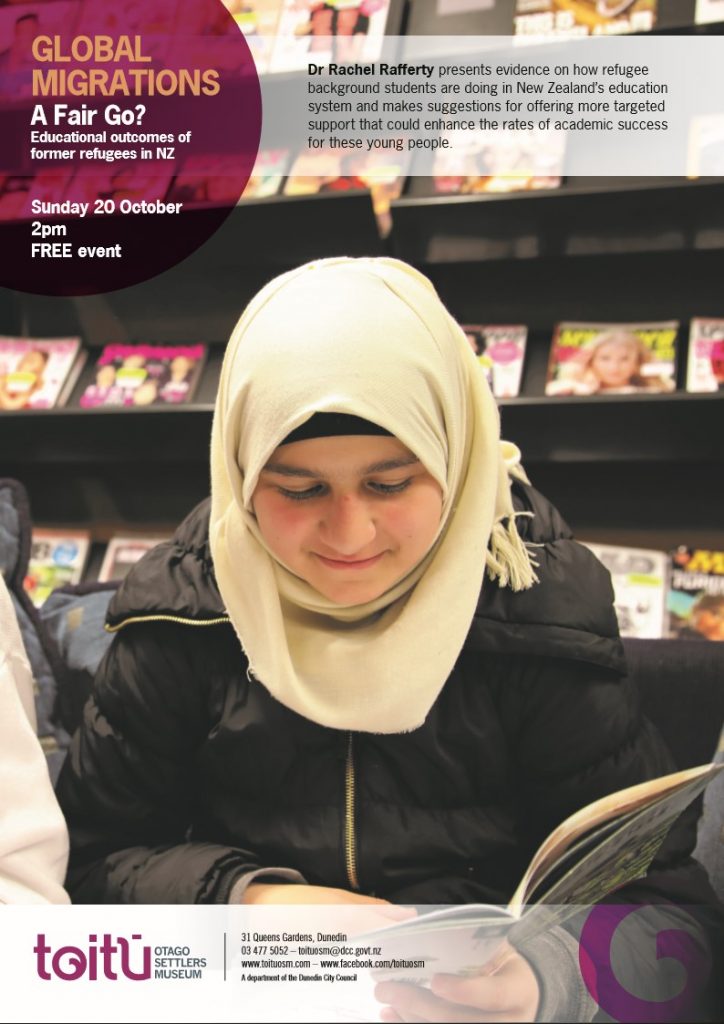Public Lecture: Skills on the Move
EVENT POSTPONED
Free Public Lecture
Skills on the Move: Deskilling, Up-skilling and Reskilling in Labour Migration
Professor Ma. Reinaruth D. Carlos
Ryukoku University, Japan
Wednesday 18 March 2020, 12pm-1pm
Room 1.20, Hunter Centre, 279-281 Great King Street, Dunedin
Migrant workers have various ways of leveraging skills in destination countries. It has been observed that many tend to take up jobs that require less or different skills than what they gained prior to migration. I cite the case of professional overseas-trained nurses (mainly from the Philippines) in Japan, Singapore and New Zealand, whose migration phenomenon has gained greater international attention because of the issues of ageing population and ‘brain waste.’
In this presentation, I explore the links between skills processes and labour migration patterns. What kinds of skills are required and how are they measured? To what extent do policy frameworks regarding skills (such as assessment and accreditation) in potential destinations influence the decision of workers on what skills they acquire prior to and during migration? How do they deal with skills mismatch between home and host countries? Here, I put special attention on deskilling, up-skilling and reskilling as inevitable processes and/or outcomes in the worker’s stepwise migration in the light of increasingly restrictive migration regulations and skills recognition/accreditation regimes, as well as the changing labour market needs particularly of highly preferred overseas destinations.
Dunedin Race Relations Week Forum
We are delighted to be sponsoring former refugee and active community member Guled Mire’s participation in the Dunedin Race Relations Week Forum. Guled, along with New Zealand Race Relations Commissioner, Meng Foon, and Dunedin Araiteuru Marae leader, Tania Williams, will discuss their insights on race relations in Aotearoa New Zealand.
The Forum is part of Dunedin Race Relations Week, organised by the Dunedin Multiethnic Council, and takes place on Thursday 19 March at 6.30pm at Araiteuru Marae, 24 Shetland Street, Maori Hill, Dunedin.
Seminar: Journey to New Edinburgh: The Story of Otago’s Pioneers
On Wednesday 11 March 2020 in Burns 5 seminar room at 3.30pm, the Centre for Global Migrations and History Programme host a joint seminar from Seán Brosnahan (Toitῡ Otago Settlers Museum). Seán’s abstract is as follows:
Following the success of Toitῡ’s documentaries Journey of the Otagos and Journey to Lan Yuan, Toitū’s exhibition team is now turning its attention to the Museum’s foundation story, the coming of the Scots to found New Edinburgh in 1848. Just as with our examination of Chinese migration and settlement, this documentary will present the causes and consequences of Scottish emigration to Otago, taking in both the Scottish background and the New Zealand foreground. Who came? Why did they leave Scotland? Why did they choose to come to Otago, the furthest destination from Scotland in the world? And what was distinctive about the society they developed here, the New Edinburgh in the South Seas?
The film project will fuse the ‘big picture’ of Scotland’s 19th-century diaspora with the ‘micro’ history of individuals and families to create an intimate picture of Otago’s founding group. This journey will take us to every corner of Scotland as we trace the complex developments at home that brought so many Scots to consider emigration, from impoverished communities in the Highlands and Islands, to the burgeoning industrial cities of Scotland’s Central Belt, and the textile centres of the Borders region. We will draw on subject experts here in New Zealand and in Scotland to add academic rigour to our presentation but maintain the vibrant direct-to-camera style that has enlivened our previous video projects.
Behrouz Boochani and Alison Phipps in Conversation
Free Public Event
Behrouz Boochani and Alison Phipps in Conversation
Friday 7 February 2020, 7pm
Mornington Methodist Church
Corner of Galloway and Whitby Streets, Mornington, Dunedin
Please join us for a conversation between writer, filmmaker and refugee Behrouz Boochani and Professor Alison Phipps, UNESCO Chair in Refugee Integration through Languages and the Arts at the University of Glasgow and the 2019 De Carle Distinguished Lecturer at the University of Otago.
De Carle Conversation
Professor Alison Phipps in conversation with Revd Dr Peter Matheson
Wednesday 29 January 2020, 7.30pm
Mornington Methodist Church
Corner of Galloway and Whitby Streets
Dunedin
Please join us and the Mornington Methodist Church as we co-host a conversation with Professor Alison Phipps about her time in Dunedin as the De Carle Distinguished Fellow, working with us in the city and in Aotearoa New Zealand to think about Refugee Integration through Languages and the Arts. Alison’s work has taken her all over the country during her visit, not least as the quota is doubled, and new resettlement programmes are in play. With a wide range of experience as an academic and activist working with UNESCO, and previously with the World Council of Churches, Alison will be in conversation with the Revd Dr Peter Matheson to share from her experiences and best wisdom during these times of great global concern.
2019 De Carle Lecture Series: Talk 8
Free Public Lecture
‘The Well in Welcome’
Professor Alison Phipps
University of Glasgow
Thursday 5 December 2019, 5.30pm
Victoria University of Wellington Law School
Government Building Lecture Theatre 1
55 Lambton Quay
Please join us for a special De Carle lecture in Wellington, co-hosted with Victoria University of Wellington.
This lecture will examine the worldwise Refugees Welcome movement in the context of creating a flourishing, inclusive society founded on principles of wellbeing. Using poetry, image, and music, this lecture will consider how wellness is made within the precarious contexts of flight, the fraught spaces of arrival and integration, and in the philosophies of societies.
New Publication: Migration, Education and Translation
We are delighted to announce that Migration, Education and Translation, an edited volume emerging from our 2017 symposium, will be published soon. Edited by our Associate Directors, Professor Henry Johnson and Dr Vivienne Anderson, this multidisciplinary collection examines the connections between education, migration and translation across school and higher education sectors, and a broad range of socio-geographical contexts.
Organised around the themes of knowledge, language, mobility, and practice, it brings together studies from around the world to offer a timely critique of existing practices that privilege some ways of knowing and communicating over others. With attention to issues of internationalisation, forced migration, minorities and indigenous education, this volume asks how the dominance of English in education might be challenged, how educational contexts that privilege bi- and multi-lingualism might be re-imagined, what we might learn from existing educational practices that privilege minority or indigenous languages, and how we might exercise ‘linguistic hospitality’ in a world marked by high levels of forced migration and educational mobility. As such, it will appeal to scholars across the social sciences with interests in education, migration and intercultural communication.
As well as chapters from the editors, the volume includes contributions from the following staff, postgraduate students, affiliates and Visiting Scholars of the Centre for Global Migrations: Dr Rachel Raffery, Dr Naoko Inoue, Dr Tiffany Cone, and Professor Alison Phipps. Congratulations everyone.
Further details are available here.
2019 De Carle Lecture Series: Talk 7
Free Public Lecture
‘Idioms of Distress: Well-being and Mental Resilience in Displaced Peoples, Refugee Populations and Global Mental Health’
Professor Alison Phipps
University of Glasgow
Thursday 28 November 2019, 5.15pm
Castle 1 Lecture Theatre, University of Otago
Please join us for the final talk of the 2019 De Carle Distinguished Lecture Series, co-hosted with the Centre for International Health, the Dunedin School of Medicine, and the Otago Medical School.
This lecture will present work from four contexts internationally where psychotherapeutic access to trauma services is non-existent but other resources are marshalled by affected populations – Ghana, Gaza, Uganda, and Zimbabwe. Focusing on migratory languages and arts, it demonstrates how global mental health frameworks may be expanded.
Global Migrations 2019 Public Lecture Series Talk 5: The Scottish Role in Developing the Ceylon Tea Enterprise
Free Public Lecture
‘The Scottish Role in Developing the Ceylon Tea Enterprise’
PROFESSOR ANGELA MCCARTHY
University of Otago
Sunday 17 November 2019, 2pm
Toitū Otago Settlers Museum
Please join us for the last talk in our 2019 Global Migrations Public Lecture Series when our director, Professor Angela McCarthy, discusses the Scottish influence on the development of the Ceylon tea enterprise.
The talk will chart the role of Scots in the development of Ceylon tea, especially the influence of James Taylor, renowned in Sri Lanka today as the ‘father of the Ceylon tea enterprise’. What factors gave Scots an edge in the plantation economy of Ceylon, and what is the legacy of that influence today?
Global Migrations 2019 Public Lecture Series Talk 4: Educational Outcomes for Former Refugees in New Zealand
Free Public Lecture
‘A Fair Go? Educational Outcomes for Former Refugees in New Zealand’
DR RACHEL RAFFERTY
University of Otago
Sunday 20 October 2019, 2pm
Toitū Otago Settlers Museum
Please join us for the fourth talk in our 2019 Global Migrations Public Lecture Series when our member Dr Rachel Rafferty discusses the educational outcomes for former refugees in New Zealand.
This talk presents evidence on how refugee background students are doing in New Zealand’s education system, and makes suggestions for offering more targeted support that could enhance the rates of academic success for these young people.

